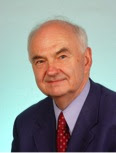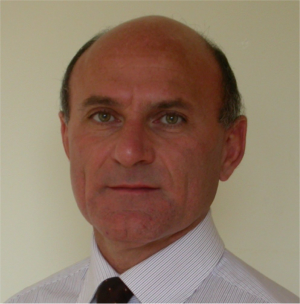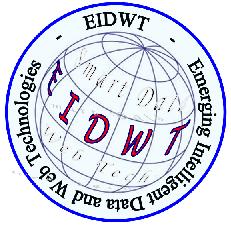Keynote Speakers
Prof. Vincenzo Piuri, Universita degli Studi di Milano, Italy Prof. Janusz Kacprzyk, Polish Academy of Sciences, Poland Prof. Carlo Cecati, University of L'Aquila, Italy 
Bio: Vincenzo PIURI has received his Ph.D. in computer engineering at Politecnico di Milano,
Italy (1989). He has been Associate Professor at Politecnico di Milano, Italy and Visiting Professor at the University
of Texas at Austin and at George Mason University, USA. He is Full Professor in computer engineering (since 2000) and
has been Director of the Department of Information Technology at the Universita degli Studi di Milano, Italy.
His main research interests are: biometrics, pattern analysis and recognition, signal and image processing, machine
learning, theory and industrial applications of neural networks, intelligent measurement systems, industrial applications,
fault tolerance, digital processing architectures, embedded systems, and arithmetic architectures. Original results have
been published in more than 350 papers in international journals, proceedings of international conferences, books,
and book chapters.
He is Fellow of the IEEE, Distinguished Scientist of ACM, and Senior Member of INNS. He is Editor-in-Chief of the
IEEE Systems Journal (2013-15), and has been Associate Editor of the IEEE Transactions on Neural Networks and the
IEEE Transactions on Instrumentation and Measurement. He is 2014 IEEE Vice President-elect for Technical Activities,
and has been IEEE Director, President of the IEEE Computational Intelligence Society, and Vice President for Education
of the IEEE Biometrics Council. He is Distinguished Lecturer both of the IEEE Computational Intelligence Society and the
IEEE Systems Council.
He received the IEEE Instrumentation and Measurement Society Technical Award (2002) for the contributions to
the advancement of theory and practice of computational intelligence in measurement systems and industrial applications,
the IEEE Instrumentation and Measurement Society Distinguished Service Award (2008), and the IEEE Computational
Intelligence Society Meritorious Service Award (2009).
Keynote Title: "Biometric Technologies for Ambient Intelligence in Internet-of-Things Environments"
Authors: Vincenzo Piuri, Ruggero Donida Labati, Angelo Genovese, and Fabio Scotti
Abstract: Adaptability and advanced services for ambient intelligence in the internet of things require
an intelligent technological support for knowing the needs and the desires of users in the interactions with
the environment for their daily use. To this purpose in some cases we can discover these characteristics by
observing the human behavior, while in others we can retrieve stored information associated to the person.
In both cases, the use of biometrics can be extremely useful both to understand the human behavior and to
identify the person or the class of persons with similar characteristics so as to derive their needs and desires.
Biometric technologies allow in fact for analyzing human traits (e.g., face, fingerprint, palm) for identity
management without requiring individuals to carry tokens or remembering information. These technologies allow
also for classifying the persons by observing some soft-biometric traits (e.g., gait, height, weight, emotions),
thus associating the needs typical of the detected class. Besides, some other soft-biometric traits (e.g., gestures, gait)
allow for specifying actions desired by the person.
This talk will analyze the opportunities offered by biometric technologies and applications to support
the realization of adaptable operations and intelligent services in the internet of things for ambient
intelligence, based on a user-centric philosophy. Attention will be also given to a comprehensive system
design methodology to take into account all application requirements, including the need for privacy protection.

Bio: Janusz Kacprzyk graduated from the Department of Electronic, Warsaw University of Technology in Warsaw, Poland with M.Sc. in automatic control, his Ph.D. in systems analysis and D.Sc. ("habilitation") in computer science from the Polish Academy of Sciences. He is Professor of Computer Science at the Systems Research Institute, Polish Academy of Sciences, Professor of Computerized Management Systems at WIT - Warsaw School of Information Technology, and Professor of Automatic Control at PIAP - Industrial Institute of Automation and Measurements, in Warsaw, Poland, and Department of Electrical and Computer Engineering, Cracow University of Technology, in Cracow, Poland. He is Honorary Foreign Professor at the Department of Mathematics, Yli Normal University, Xinjiang, China, and Visiting Scientist at the RIKEN Brain Research Institute in Tokyo, Japan. He is Full Member of the Polish Academy of Sciences, and Foreign Member of the Bulgarian Academy of Sciences and Spanish Royal Academy of Economic and Financial Sciences (RACEF). He is Fellow of IEEE and of IFSA.
He was a frequent visiting professor in the USA, Italy, UK, Mexico and China. His main research interests include the use of computational intelligence, notably fuzzy logic, in decisions, optimization, control, data analysis and data mining, with applications in databases, ICT, mobile robotics, etc.
He is the author of 5 books, (co)editor of ca. 70 volumes, (co)author of ca. 500 papers. He is the editor in chief of 6 book series at Springer, and of 2 journals, and a member of editorial boards of more than 40 journals. He is a member, a member of Adcom (Administrative Committee) of IEEE CIS, of Award Committee of IEEE CIS, and a Distinguished Lecturer of IEEE CIS.
He received many awards, notably: The 2006 IEEE CIS Pioneer Award in Fuzzy Systems, The 2006 Sixth Kaufmann Prize and Gold Medal for pioneering works on soft computing in economics and management, and The 2007 Pioneer Award of the Silicon Valley Section of IEEE CIS for contribution in granular computing and computing in words, and Award of the 2010 Polish Neural Network Society for exceptional contributions to the Polish computational intelligence community, IFSA 2013 Award for outstanding academic contributions and life time achievement in the field of fuzzy systems, and a continuous support of IFSA, WAC (World Automation Congress) 2014 Lifetime Achievement Award in Soft Computing..
Currently he is President of the Polish Society for Operational and Systems Research and Past President of IFSA (International Fuzzy Systems Association).
Keynote Title: "A crucial role of coordination, cooperation and collaboration in distributed human centric IT/ICT systems based on information and knowledge sharing"
Abstract: We are concerned with broadly perceived distributed information systems, networks, etc. the very essence of which is reflected in, for instance, many modern technological and social phenomena like social networks, the internet of things, etc. We assume that such systems can involve technical devices (e.g. robots, computer systems), human beings (individuals, groups and maybe even organizations), software agents, etc. They constitute a (possibly) synergistic combination of technology, people and organization aimed at facilitating the communication, cooperation, collaboration, coordination, etc. They should possibly contribute to a more effectively and efficiently functioning to attain some common/shared goal, with mutual benefits for the participating parties.
First of all, we discuss the three crucial issues that are related to the functioning of such human centric systems: (1) coordination that boils down to how to making different constituents of the systems work together for fulfilling desired overall goals, (2) collaboration that boils down to a joint functioning of the constituents with each other to attain shared goals, and (3) cooperation that boils down to a joint acting of the constituents for their common/mutual benefit. Basically, we will consider these three (and mention some other, less important types of joint behavior) from various viewpoint, notably a decision theoretic, systems theoretic, information theoretic, cognitive, psychological, etc. We will indicate how some inspirations from social behavior can be very useful for the type of systems relevant to the conference topic.
As a key element for all the above forms of goal oriented types of functioning and behavior (coordination, collaboration and cooperation) we present, first, information sharing, as it is common in distributed systems considered, and is supported by already established IT/ICT technology. Then, we stress that information sharing, as important as it is, is not enough and should ultimately be complemented by knowledge sharing. We present first some modern views on knowledge sharing in the context of management, knowledge based economy, human affects, judgments and biases, etc. Then, we show how new developments in IT/ICT, notably in broadly perceived ontologies, can help solve an immensely relevant yet very difficult problem of knowledge sharing.
We finish with a message that what has been so far considered as a collaborative or cooperative system approach, sometimes depending on the author’s preference. should be meant in fact as a coordinative-collaborative-cooperative systems approach to be able to grasp more aspects and issues related to a crucial role of human beings in the system, who is however working with inanimate beings like robots, software agents, etc., in a complex setting of common, shared, competitive, conflicting, etc. preferences, goals, etc., and a variety of selfish, and fair, or even altruistic, types of attitudes and behaviors.

Bio: Dr Carlo Cecati is a Full Professor of Converters, Electrical Machines and Drives at University of L'Aquila, Italy and a Guest Professor at Harbin Institue of Technology, China. He is a Fellow of IEEE and the Editor-in-Chief of the IEEE Trans. on Industrial Electronics, after serving as Co-Editor-in-Chief (2009-2012) and Associate Editor since 2004. He also served as an Editor of IEEE/ASME Trans. on Mechatronics (2006-2008) and a Guest Editor of several Special Sections of IEEE Trans. on Industrial Electronics and IEEE Trans. on Industrial Informatics.
His research interests fall into the area of renewable energies and energy saving, in particular, the application of power electronics to renewable energy, distributed generation, smart grids and electrical drives, with emphasis on control, modulation techniques, fault diagnosis, microprocessor applications and industrial networks. In these fields, he published more than 130 papers in the most prestigious international journals and conference proceedings. He was a recipient of the Best Paper Awards of IEEE Transactions on Industrial Informatics (2012 and 2013)and IEEE Industrial Electronics Magazine (2012).
He has been an Invited Speaker and a Tutorial Speaker at several universities and conferences in USA, Canada, U.K., Korea, Denmark, Qatar, China, Poland, Angola, Italy. He has been an evaluator of research projects for several national and international institutions including the European Community and Qatar National Research Foundation and an evaluator for numerous international universities in promotions to assistant/associate/full professors and in electrical degree course accreditation.
Dr Cecati co-founded DigiPower Ltd in 2007, being C.E.O. until 2012 and now is Principal Scientist and Technical Director.
Keynote Title: "Recent Research in Power Electronics, Renewables and Smart Grids"
Abstract: In this talk, an overview of our recent research of ICT for Energy Group at DISIM-UAQ, University of L'Aquila, Italy, in power electronics, renewables and smart grids will be presented. Firstly, we will introduce some analytical procedures for Selective Harmonic Elimination (SHE) and Selective Harmonic Mitigation (SHM) that have been developed at DISIM-UAQ to remove a single harmonic (SHE) or a group of harmonics (SHM) of multi-level converters to reduce computational burden so that the SHE/SHM strategy can implemented in real time. Secondly, we will talk about applying Extended Describing Functions (EDF) to the control of LLC DC/DC resonanat converters under wide input voltage and load variations. A nonlinear observer-based controller is proposed to stabilize the output of LLC DC/DC resonanat converters effectively. Thirdly, a grid-connected multi-string photovoltaic system with a three-level voltage source converter will be discussed, with a cascaded control structure involving a voltage controller and a current controller. Finally, a Simulink model of Silicon Carbide devices will be presented to facilitate the precise simulation of next generation power converters.

